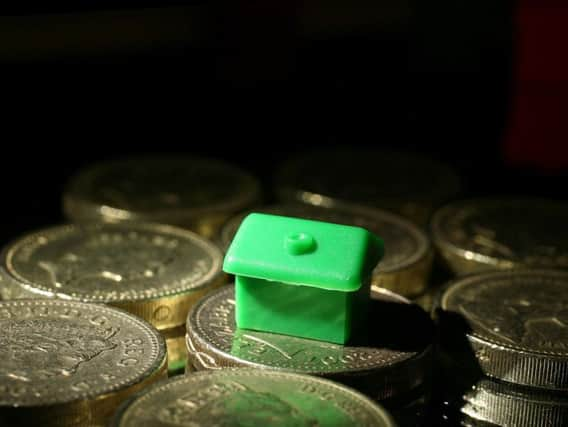Yorkshire households face more financial pressures as cost of living jumps again


The Consumer Price Index (CPI) measure of inflation is expected to reach 2.6% in April - the highest rate since September 2013 - when official figures are released on Tuesday.
It would mean the squeeze on consumer spending continued last month following a temporary respite in February and March when CPI paused at 2.3%.
Advertisement
Hide AdAdvertisement
Hide AdSamuel Tombs, chief UK economist at Pantheon Macroeconomics, said CPI could even reach 2.7%, with upward pressure coming from the airline industry.
Airline prices are expected to have soared last month because the Easter holidays fell on April 16 this year rather than March 27 in 2016.
He said: "Prices for airline travel tend to rise very sharply around the Easter holidays, which will add 0.2% to the inflation rate."
The way the Office for National Statistics measures prices means Npower and Scottish Power's decision to increase gas and electricity prices in March will also have an impact on April's CPI rate.
Advertisement
Hide AdAdvertisement
Hide Ad"Government changes to vehicle excise duty in April also made it more expensive to buy a new car than before," he added.
"Retailers will be continuing to pass on higher import prices to consumers, adding another 0.1% to the rate as sterling's shock comes through."
The Bank of England said in its latest inflation report that CPI would peak at 3% later this year as the pound's slump since the Brexit vote causes price tags to tick higher.
Despite inflation's upward march, the Bank's Monetary Policy Committee voted to keep interest rates unchanged on Thursday, with outgoing policymaker Kristin Forbes remaining the sole dissenter.
Advertisement
Hide AdAdvertisement
Hide AdHowever, the minutes suggested the next move in rates would still be a rise, with other MPC members repeating that it would take "little further upside news" to consider joining Ms Forbes in voting for a hike.
The Bank said the pound's gains since the General Election would help inflation drop back in 2018 and 2019.
Howard Archer, chief UK and European economist at IHS Markit, said: "We see inflation easing back from a peak of 3% in late-2017/early-2018 to 2.6% at the end of 2018 and 2.3% at the end of 2019.
"This is due to the impact of sterling's marked drop waning, as well as muted economic activity limiting underlying price pressures."
Advertisement
Hide AdAdvertisement
Hide AdInflation held steady in March after rising prices tags on food and clothing were offset by a drop in the cost of flights and fuel.
The biggest rise came from food and non-alcoholic beverages, which reached its highest level for three years at 1.2% for the 12 months to March.
Economists had expected the UK economy to slow at the start of this year as consumers tighten their belts in the face of rising inflation.
However, the initial estimate for first quarter gross domestic product (GDP) came in at a lower-than-expected at 0.3%.